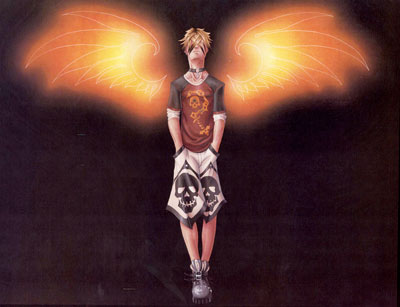All Nonfiction
- Bullying
- Books
- Academic
- Author Interviews
- Celebrity interviews
- College Articles
- College Essays
- Educator of the Year
- Heroes
- Interviews
- Memoir
- Personal Experience
- Sports
- Travel & Culture
All Opinions
- Bullying
- Current Events / Politics
- Discrimination
- Drugs / Alcohol / Smoking
- Entertainment / Celebrities
- Environment
- Love / Relationships
- Movies / Music / TV
- Pop Culture / Trends
- School / College
- Social Issues / Civics
- Spirituality / Religion
- Sports / Hobbies
All Hot Topics
- Bullying
- Community Service
- Environment
- Health
- Letters to the Editor
- Pride & Prejudice
- What Matters
- Back
Summer Guide
- Program Links
- Program Reviews
- Back
College Guide
- College Links
- College Reviews
- College Essays
- College Articles
- Back
Phaeton
The heat, blistering and comforting, radiates out of the once-pristine mansion. I watch as the white exterior is blackened by tongues of flame, licking and caressing the structure until, section by section, the walls moan and reach out to the flames below, consummating an inferno of sparks. From the inside, I can hear faint shrieks. The Picasso withers in agony, crying out as darkness cuts through its canvas, finding it ironic that the black scars are created from the bright reds and yellows that paint it. In the far corner of the house, a Matisse hyperventilates as its lifeblood disintegrates into a fine powder, a smoky grey that scatters with every new little gust. Yes, even Aeolus has travelled to this Knossos, helping his hotheaded partner seek out the staunch defenders that dare resist its call.
It is amazing what one well-placed, oily cloth can do with a little coaxing. I pat my pocket, making sure that my lucky butane lighter is still close to my heart. Then I hear the sirens, those horrible wails that distract me from the beauty at hand. I hurry off, unable to bear the sight of jets of water unceremoniously dousing my creation.
When I was five, my parents drowned. Before they drowned, they contracted hypothermia. Before they contracted hypothermia, they were tossed around by cold, dark waves. Poseidon slowly drained their life forces, sapping heat and moisture from their bodies until the spark faded from their eyes. That’s what the autopsy expert told me, more or less. That’s what Ismene at the orphanage told me, perhaps in a slightly more comforting manner. They told me that it was an accident, a horrible tragedy. I stole Daddy’s lighter before they also told me my parents’ belongings would be auctioned off.
I hate water. It doused the fires that burned inside my parents. My fire, however, was not doused; no, it burned despite water, little streams forever memorialized in a photo of a little boy standing next to a funeral pyre.
In middle school, a small fire broke out in the science building. It was a minor fire, nothing to be proud of, and it only consumed a few paper plates before the cold, dark waters flowed from the ceiling, dumping unnecessary gallons onto the small reds and yellows that fed on the plates. Funnily enough, another fire broke out in my high school a few years later; this time, the police were called in for suspected arson. After all, someone had to have blocked the smoke detectors from working in Mr. Meleager’s classroom, and cut off the water supply to the sprinklers in the nearby garden, and placed certain explosive chemicals in the new, shiny science laboratory. It was a very pretty sight; not only reds and yellows, but blues, white-hot blues, blossomed from the buildings where I had just aced my finals. It was a shame, really, when the police gave up their search for an arsonist. I never did get the credit I deserved.
Fire has always comforted me, stood by me when no one else would. With each successive blaze, I honed my craft until I could watch masterpieces unfold, like a mansion’s dying sigh of contentment, or an auction house’s final crimson implosion. Every now and then, I would get a laugh out of some pale reporter gesturing at a recent masterpiece of mine, asking the sedentary masses “Could this recent series of arson be related?” I always laugh out of merriment when I see that, bolded on the bottom of the screen. Yes, my masterpieces are related, even if each one whispers to me a different story. After my purpose is done, I move on to my next area, determined to sear my desires into the rolling hills or tall, proud buildings of the next domain. Some people paint landscapes, or sing sweet melodies, or sketch in museums an ancient pithos. My talent, my medium, is fire; the gift of Prometheus is the most liberating way of conveying one’s heart. The malleability of fire only has a few limits; human beings, for example, have never been allowed in my masterpieces. Rather than taint the sanctity of the flame with such mundane offerings, I sacrifice more potent materials.
I suppose it is interesting to look at the etymology of my name. Phaeton was the son of a mortal woman and the sun god Helios, and he attempted to ride his father’s chariot in the stars. By the smoldering conclusion of his tale, Phaeton’s ostensibly rash driving results in his demise. Indeed, it is from Phaeton’s actions that the second meaning of his name is derived: one who can set the world ablaze.
I refuse to be struck by Zeus’s lightning. The fiery wings I possess cannot be doused. The only thing I can do is burn, burn brighter than before, and fulfill the red-hot prophecy that the Fates ordained.

Similar Articles
JOIN THE DISCUSSION
This article has 0 comments.
